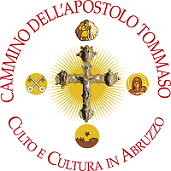The life and work of Flannery O’Connor, the great 20th Century American author, is showcased in this exhibit. As an important American novelist, essayist, and short-story writer, O’Connor’s memorable characters and unforgettable settings reveal deep insights into our human existence. O'Connor once wrote: "Grace changes us and change is painful." She died at the age of 39 from complications of lupus after a fourteen year battle with the disease, but not before leaving her mark on American literature. O’Connor wrote 32 short stories, two novels, and numerous reviews and commentaries. The 2010 Rimini Meeting in Italy—the world’s biggest summer festival of encounters, exhibitions, music and spectacle—also featured this exhibit. Michael Fitzgerald (the son of Sally and Robert Fitzgerald, who were O’Connor’s lifelong friends) gave a presentation on O'Connor at this event.
“A literary vocation. An illness. A Catholic life in the United States' Protestant South. Flannery O'Connor: a writer of short stories whose vision was apprehended by her senses; an artist whose embrace of her own limits was the means of a mysterious encounter with the non-limit. Her characters often embody the shocking or distorted in such a way that the intrusion of grace is not necessarily obvious, but is nevertheless present in the minutest-and sometimes what we would call the most absurd-moments within the texture of human existence. Through the comedy of her style, the particularity of the lives and circumstances of her characters became an opening upon the timeless. The legacy she left was one that continues to point us to an Absolute that directly in front of us, within the reality we see and touch.” –Dino D'Agata, curator




 Share Exhibit
Share Exhibit 










